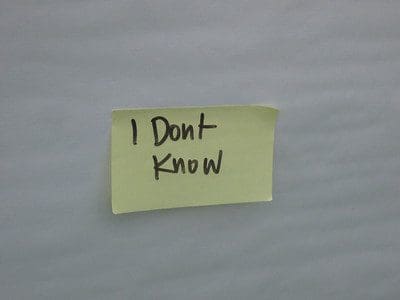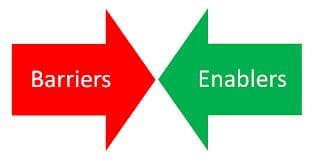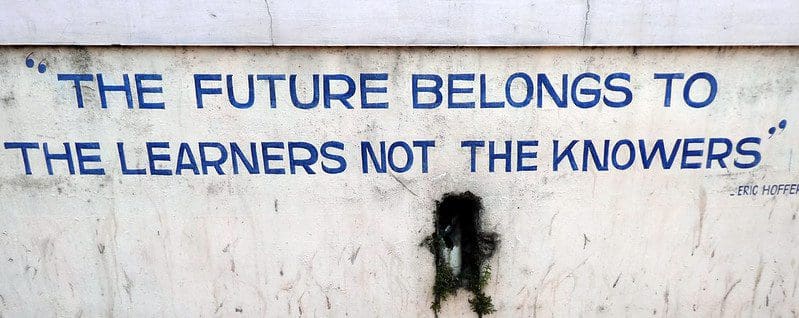
Favorite We hear a lot about the importance of a “no-blame culture” in Lesson-learning, but a no-blame culture won’t work unless you have no-blame processes as well. Image from wikimedia commons Learning lessons in an organisation requires a culture of openness, so that people are willing to explore honestly and
Read More
 Shared by Nick Milton February 14, 2020
Shared by Nick Milton February 14, 2020

Favorite Nobody will look for knowledge from others if they think they already know what to do, and you cannot teach anyone anything if they think they know it already. Therefore the most effective way to promote a desire to learn in an organisation, is to move people out of
Read More
 Shared by Nick Milton February 7, 2020
Shared by Nick Milton February 7, 2020

Favorite We are built to share knowledge within our tribes. To improve knowledge sharing, build bigger tribes. Papua New Guinea – True North –on Flickr – source/credit: North Star Cruises. Photograph by David Kirkland. Attribution-NoDerivs 2.0 Generic (CC BY-ND 2.0) As humans, we have always had the ability, through language
Read More
 Shared by Nick Milton February 3, 2020
Shared by Nick Milton February 3, 2020

Favorite We all know that trust is a key factor in the success of Knowledge Management, but trust in what, and how do we build that trust? Image from wikimedia commons Trusting a Knowledge Management Framework is like trusting a vending machine – you put money in, you get chocolate out every
Read More
 Shared by Nick Milton January 16, 2020
Shared by Nick Milton January 16, 2020

Favorite An effective Knowledge management communication message needs to appeal to the head, to the heart, to the hands, and to the feet of the audience. Here’s how. Communication is one of the 5 tools of KM culture change. Imagine preparing an internal presentation on Knowledge Management to one of
Read More
 Shared by Nick Milton January 13, 2020
Shared by Nick Milton January 13, 2020
Favorite If you are a leader who wants to help develop a Knowledge Management and Organisational Learning culture in their organisation, you can do this simply, by asking two questions. I have a question by The US Army on Flickr The two questions are Who have you learned from?Who have
Read More
 Shared by Nick Milton November 21, 2019
Shared by Nick Milton November 21, 2019

Favorite This post is an update of an earlier post in 2014, brought up to date with new survey data. As part of our global surveys in 2014 and 2017, answered by over 700 KM professionals, we asked respondents to rank a number of barriers in order of the impact
Read More
 Shared by Nick Milton November 19, 2019
Shared by Nick Milton November 19, 2019
Favorite KM requires a learning culture, and motivation to learn comes from motivation to improve. That’s why KM thrives in a high-performance culture, where people are not content with existing performance, and actively seek new knowledge that will help them perform even better. Image from eglin.af.milU.S. Air Force photo/Samuel King Jr
Read More
 Shared by Nick Milton November 8, 2019
Shared by Nick Milton November 8, 2019

Favorite It’s an old saying; How do you change hearts and minds? One at a time! This updated reprise from the archives explains how this works for Knowledge Management. The road of life twists and turns by AndYaDontStop on Flickr Implementing Knowledge Management is a change process – we all
Read More
 Shared by Nick Milton September 20, 2019
Shared by Nick Milton September 20, 2019

Favorite The knower/learner spectrum is one of the key dimensions of KM culture, and one that all knowledge managers should understand. Image by muffinn on Flickr Knowers and Learners are two archetypes within Knowledge Management, representing two end-members of one of the ten cultural dimensions of Organisational Learning. The difference
Read More
 Shared by Nick Milton August 1, 2019
Shared by Nick Milton August 1, 2019
![]() Shared by Nick Milton February 14, 2020
Shared by Nick Milton February 14, 2020







